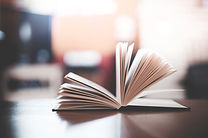CBSE Class 10 Science MCQs Chapter 3 Metals and Non-Metals are available here for students’ practice. These Metals and Non-Metals Class 10 MCQs have been introduced in the board exam to test students’ analytical and reasoning skills. Though MCQs seem to be easy, students need to have a good hold of the concepts to answer them. We have compiled a few MCQs on CBSE Class 10 Science Chapter 3 Metals and Non-Metals in the PDF below. Students can also access the CBSE Class 10 Science MCQs for other chapters to boost their exam preparation. Certainly! Here are some multiple-choice questions (MCQs) based on the topics of Metals and Non-Metals for Class IX CBSE board, along with their answers:
1. Q: Which of the following is a metal?
a) Oxygen
b) Carbon
c) Iron
d) Hydrogen
2. Q: Non-metals generally have _____.
a) High melting points
b) Low boiling points
c) High electrical conductivity
d) All of the above
3. Q: Which of the following elements is a non-metal?
a) Sodium (Na)
b) Chlorine (Cl)
c) Magnesium (Mg)
d) Copper (Cu)
4. Q: Which of the following is a physical property of metals?
a) Brittle
b) Dullness
c) Malleability
d) Low electrical conductivity
5. Q: Which of the following is a metalloid?
a) Oxygen (O)
b) Sulfur (S)
c) Silicon (Si)
d) Nitrogen (N)
6. Q: Which of the following metals is the best conductor of electricity?
a) Copper
b) Silver
c) Gold
d) Aluminum
7. Q: Which of the following non-metals is a gas at room temperature?
a) Sulfur
b) Phosphorus
c) Oxygen
d) Bromine
8. Q: Which of the following non-metals is essential for combustion?
a) Nitrogen
b) Chlorine
c) Oxygen
d) Carbon
9. Q: Which of the following metals is the lightest?
a) Iron
b) Aluminum
c) Copper
d) Lead
10. Q: Metals are generally ________.
a) Good conductors of heat and electricity
b) Brittle
c) Non-lustrous
d) Poor conductors of heat and electricity
11. Q: Which of the following non-metals is a liquid at room temperature?
a) Bromine
b) Carbon
c) Phosphorus
d) Sulfur
12. Q: The metal used in making wires and electric cables is:
a) Copper
b) Aluminum
c) Zinc
d) Iron
13. Q: Non-metals generally react with metals to form ________.
a) Oxides
b) Bases
c) Salts
d) Alloys
14. Q: Which of the following non-metals is an essential constituent of all living systems?
a) Nitrogen
b) Oxygen
c) Sulfur
d) Carbon
15. Q: The property of metals by which they can be drawn into wires is called ________.
a) Malleability
b) Ductility
c) Conduction
d) Valency
16. Q: The element that is a good conductor of electricity but a poor conductor of heat is:
a) Silver
b) Copper
c) Aluminum
d) Zinc
17. Q: Which of the following non-metals is used in making fertilizers?
a) Phosphorus
b) Sulfur
c) Chlorine
d) Nitrogen
18. Q: Which of the following metals is the most reactive?
a) Copper
b) Gold
c) Iron
d) Potassium
19. Q: The metal that is used for galvanizing iron to protect it from rusting is:
a) Copper
b) Zinc
c) Aluminum
d) Silver
20. Q: Non-metals generally react with oxygen to form ________.
a) Bases
b) Alloys
c) Salts
d) Oxides
21. Q: Which of the following non-metals is used in water purification?
a) Oxygen
b) Chlorine
c) Nitrogen
d) Carbon
22. Q: Which of the following metals is used in making aircraft bodies?
a) Iron
b) Aluminum
c) Copper
d) Lead
23. Q: The property of metals by which they can be beaten into sheets is called ________.
a) Ductility
b) Malleability
c) Conduction
d) Density
24. Q: The non-metal used in the manufacture of fertilizers is ________.
a) Nitrogen
b) Sulfur
c) Phosphorus
d) Carbon
25. Q: Which of the following metals is used in making water pipes and cooking utensils?
a) Copper
b) Aluminum
c) Iron
d) Zinc
26. Q: The element that exists in its liquid state at room temperature is:
a) Bromine
b) Mercury
c) Iodine
d) Nitrogen
27. Q: The non-metal used in making matches is:
a) Phosphorus
b) Sulfur
c) Carbon
d) Oxygen
28. Q: Which of the following metals is the heaviest?
a) Aluminum
b) Iron
c) Copper
d) Lead
29. Q: The non-metal that is a gas and is essential for respiration is:
a) Oxygen
b) Nitrogen
c) Carbon
d) Hydrogen
30. Q: Which of the following is a metalloid?
a) Carbon
b) Silicon
c) Sulfur
d) Chlorine
Answers:
1. c) Iron
2. b) Low boiling points
3. b) Chlorine (Cl)
4. c) Malleability
5. c) Silicon (Si)
6. b) Silver
7. c) Oxygen
8. c) Oxygen
9. b) Aluminum
10. a) Good conductors of heat and electricity
11. a) Bromine
12. a) Copper
13. c) Salts
14. d) Carbon
15. b) Ductility
16. a) Silver
17. d) Nitrogen
18. d) Potassium
19. b) Zinc
20. d) Oxides
21. b) Chlorine
22. b) Aluminum
23. b) Malleability
24. c) Phosphorus
25. a) Copper
26. b) Mercury
27. a) Phosphorus
28. d) Lead
29. a) Oxygen
30. b) Silicon
Remember to review the properties and characteristics of metals, non-metals, and metalloids. Understanding the differences between them is essential for this topic. Practice solving more questions to reinforce your knowledge and preparation for exams. Best of luck with your studies!



Comments